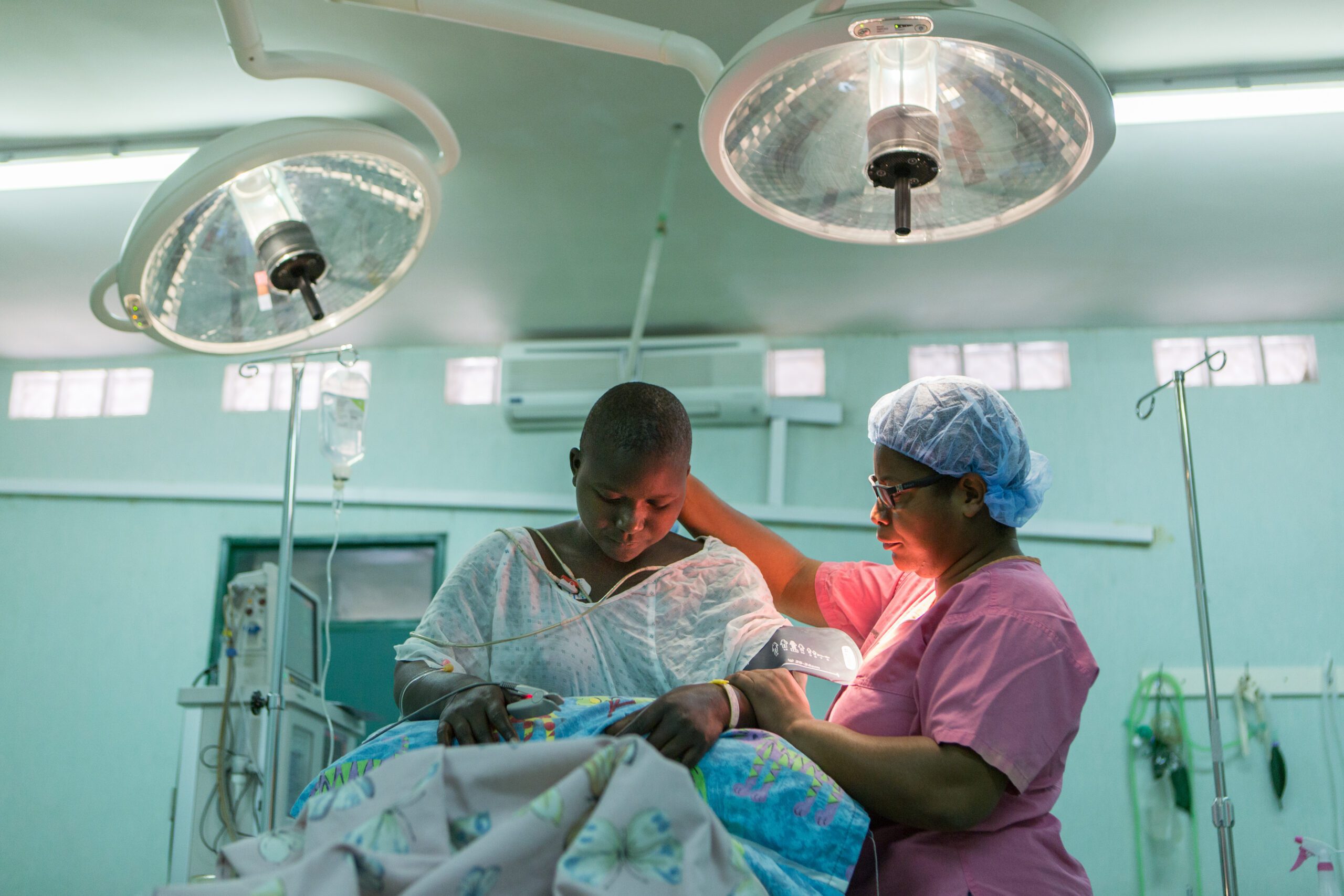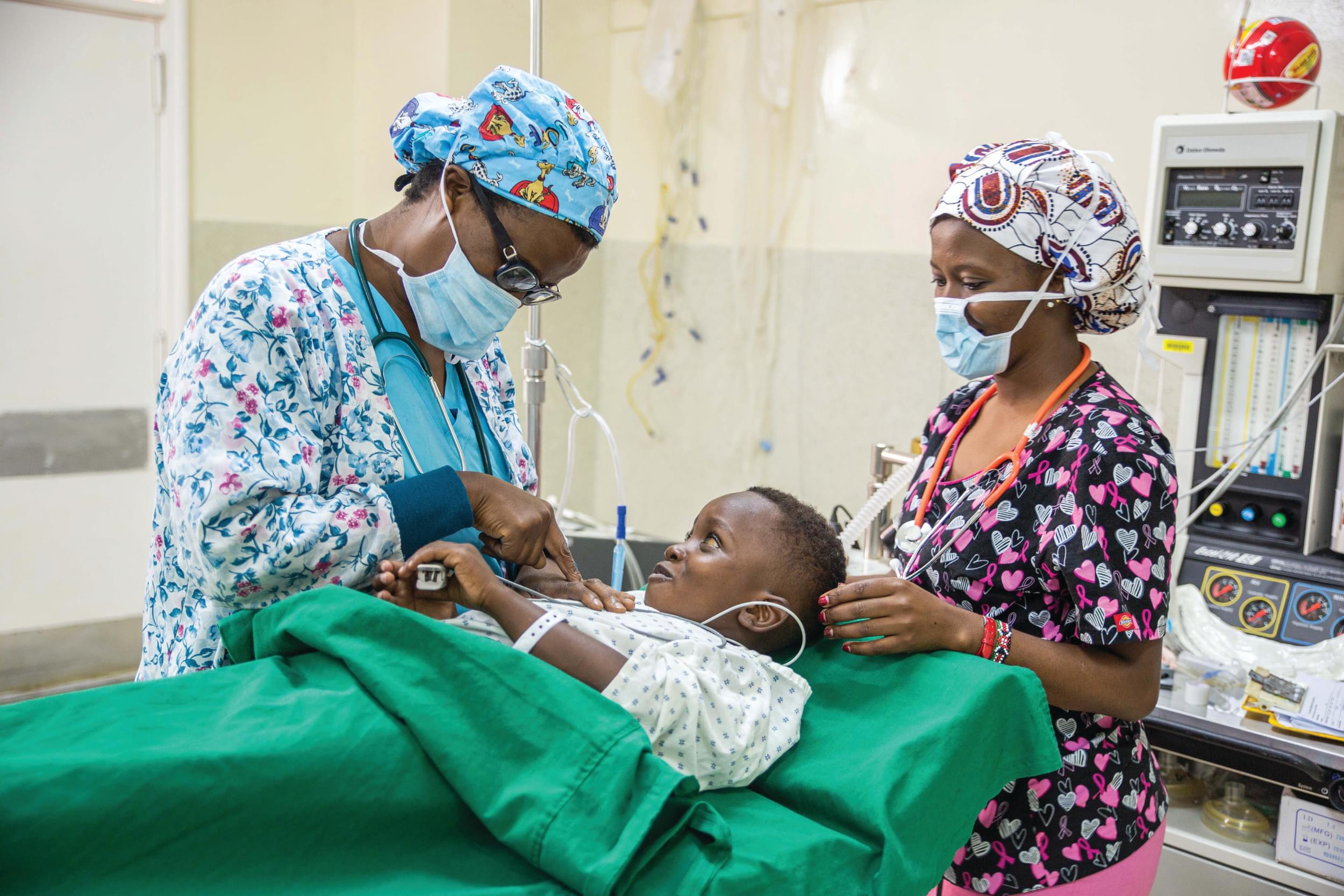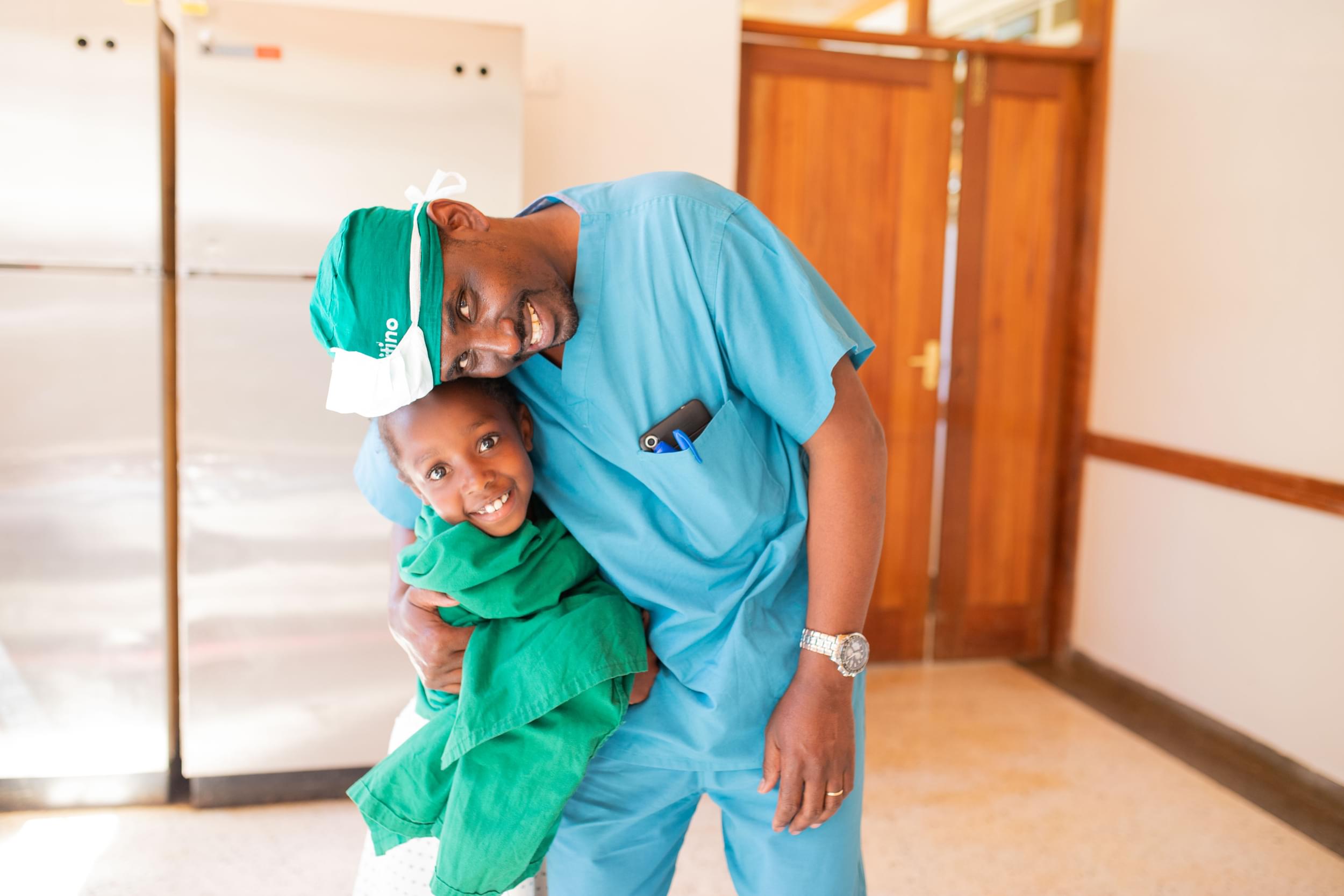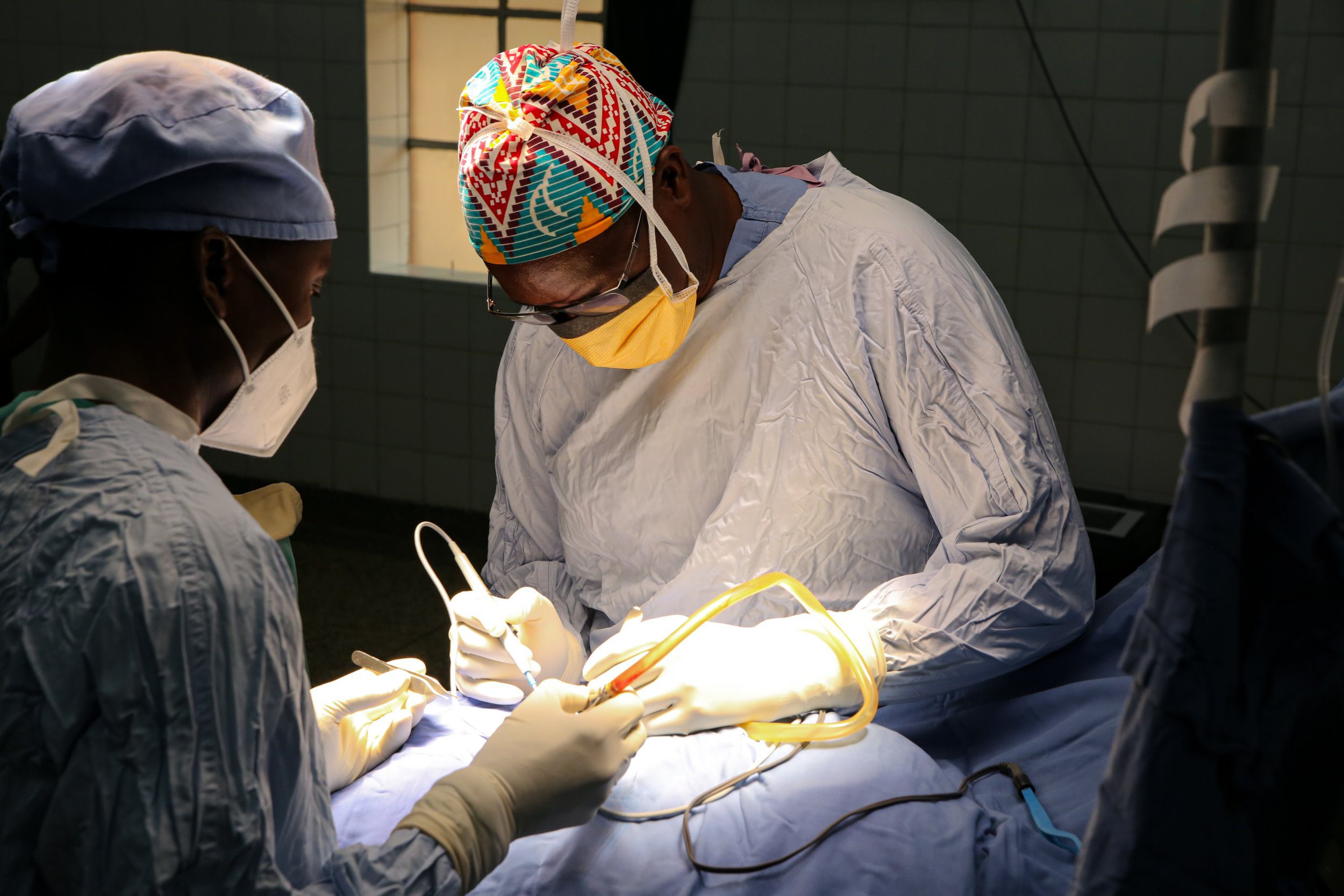Spina Bifida
Spina bifida is a congenital disability when the spinal cord, comprised of nerves and fluid, doesn’t form correctly during pregnancy and presents outside a child’s body. It is the second most common condition treated at CURE Uganda.
Spina bifida cases can range from a minor scar on the back to a large protuberant sac at the base of the spine. The more severe spina bifida cases can cause a lack of bladder control, leg paralysis, walking or mobility problems, orthopedic complications, and hydrocephalus. The condition can be life-threatening due to the exposed spinal nerves, leaving the baby vulnerable to infections like meningitis and encephalitis.
Maternal folate supplementation is an essential preventative measure. This condition is commonly seen in countries where CURE serves. CURE Uganda surgically cares for 300 children every year with spina bifida.
- 1 in every 1,000 babies is born with spina bifida worldwide.
- 80% of those children come from low- and middle-income countries.
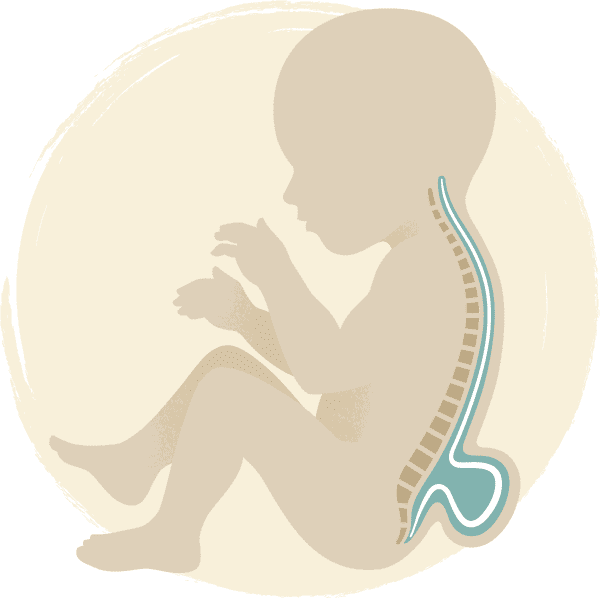
What issues do children with spina bifida face?
Without medical intervention, babies born with spina bifida are at high risk for infection, injury, and even death.
Life-Threatening
What makes spina bifida life-threatening are the spinal nerves and tissues exposed, leaving the baby vulnerable to infections. The more severe spina bifida cases can include orthopedic complications and hydrocephalus.
Stigma
Children and their families often experience discrimination, leading to poor self-confidence and isolation.
Developmental Delays

Children may experience a delay in meeting milestones like sitting, mobility, and challenges with bladder control.
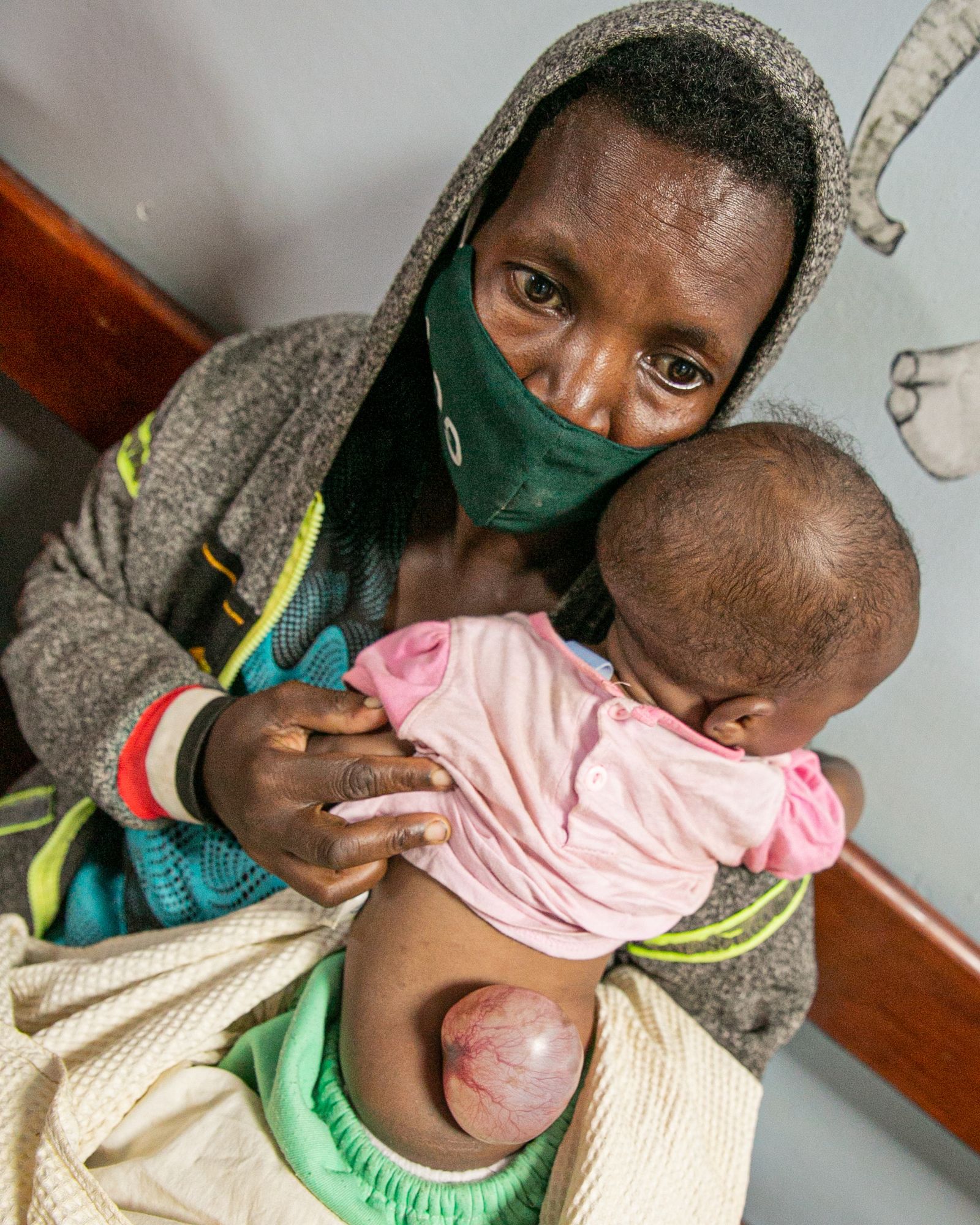
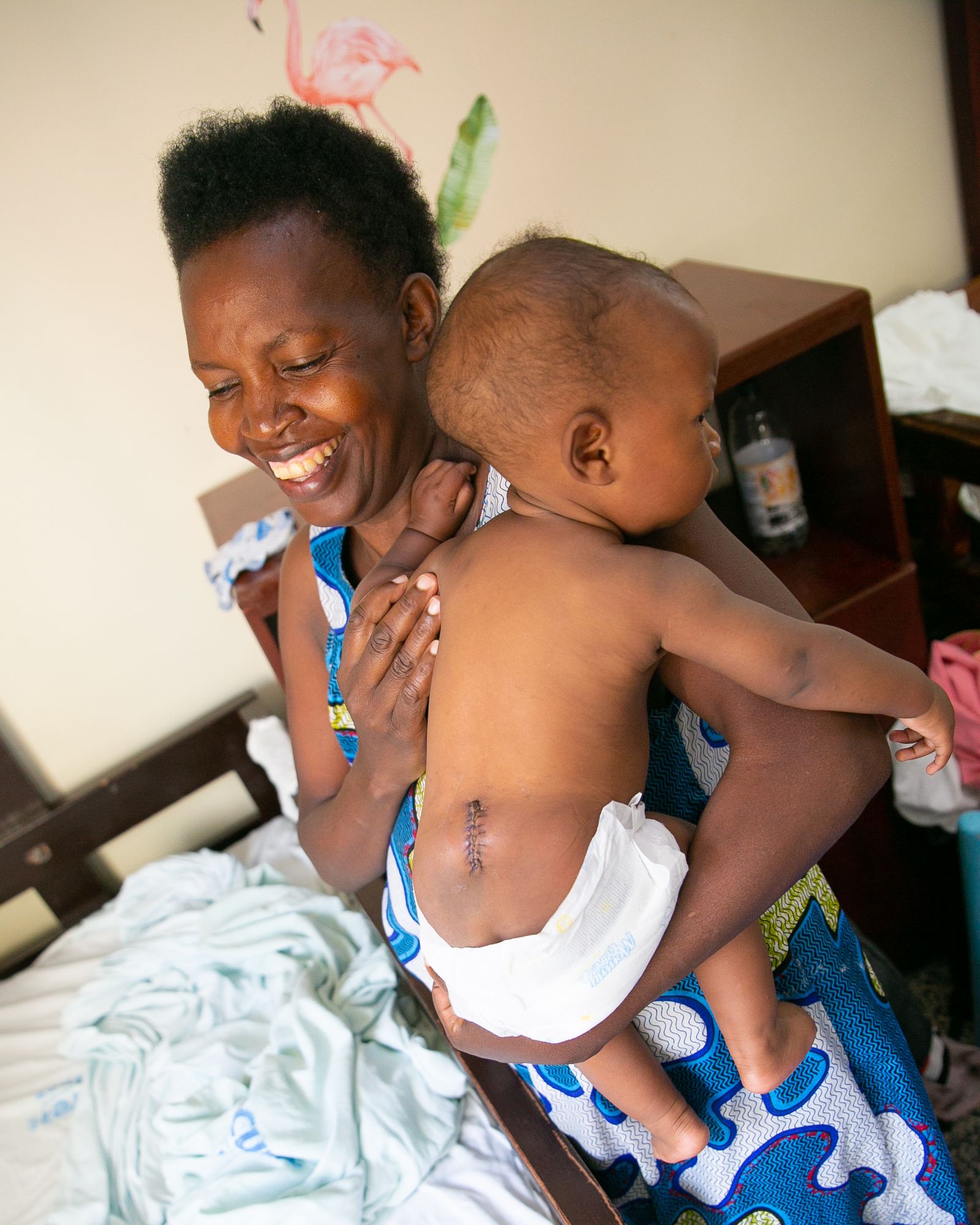
CUREkid Spotlight, SPINA BIFIDA
Daniel | CURE Uganda
Before Surgery
Little Daniel was born with spina bifida, causing a visible sac to protrude from the base of his spine. His mom, Harriet, was overcome with worry. Thankfully, she was referred to CURE Uganda, and a local pastor helped her and Daniel reach the hospital.
After Surgery
While CURE’s surgeons were treating Daniel, the ministry team provided comfort and prayed with Harriet. Surgery was successful, and after a few days, Daniel was discharged to complete his recovery at home. Generous donors to CURE make lifesaving surgeries like Daniel’s possible every day at our hospital in Uganda. Harriet says, “A burden has been lifted . . . God bless you all for loving me.”

“In well-developed countries, a child with spina bifida gets treated within 24 to 48 hours after they are born. In some parts of Africa, some children wait a week to six months before they get surgery. This puts them at risk of infection, possibly affecting their neurocognitive function . . . so treating them early is of the utmost importance.”
— Dr. Emmanuel Wegoye, Medical Director at CURE Uganda





